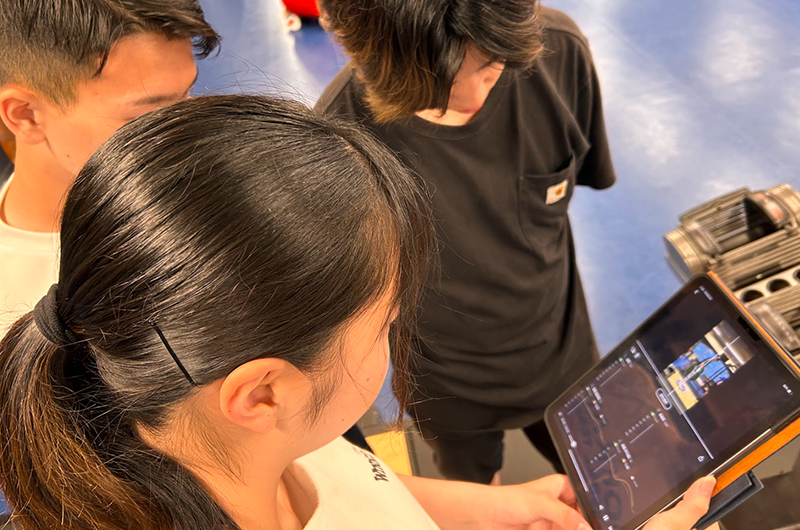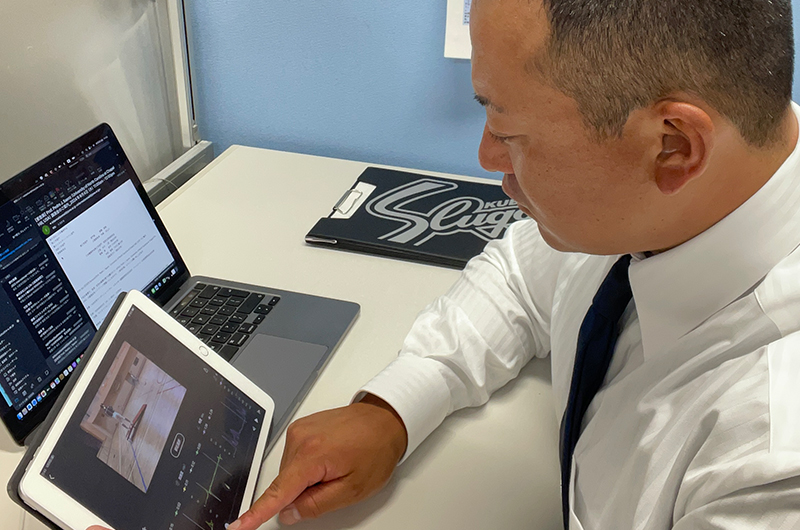Implementation record of SPLYZA Motion in classes. :
Hokusho University

Hokusho University | Dr. Watanabe
■ Introduction to Dr. Watanabe's Seminar
I oversee a seminar specializing in sports biomechanics, with around 20 students participating. We conduct
motion analysis for sports and training activities such as baseball, utilizing tools like SPLYZA Motion and
motion capture systems. The students in the seminar come from a variety of athletic backgrounds, including
baseball, track and field, and soft tennis. At one point, there was even a student from the rhythmic
gymnastics team.
■ Challenges Before Introducing SPLYZA Motion
Before introducing SPLYZA Motion, we primarily used a motion capture system. However, since measurements
were limited to indoor environments, factors such as room size and ceiling height often caused discrepancies
between the recorded movements and the actual ones performed in real-world settings.

■ Deciding Factors for Introducing SPLYZA Motion
The simplicity of using just a smartphone or iPad to conduct analyses was a major factor, as was the ability
to provide immediate feedback. I believed this would spark greater interest among students in motion
analysis.
■ Practical Applications of SPLYZA Motion
In baseball, we use SPLYZA Motion to analyze ways to improve pitching form for faster throws, hit balls
farther, or increase swing speed. For non-ball sports, track and field athletes have utilized the tool as
well. For example, one student worked on a thesis comparing hurdle techniques and sprint starting
motions.
We also use a motion capture system, selecting tools based on the type of movement and the students'
specific needs. However, SPLYZA Motion is primarily used for outdoor measurements.

■ Effects After Introducing SPLYZA Motion
The greatest advantage is the simplicity—it only requires one device. Since it can be used outdoors, for
baseball pitchers, for example, we can measure pitching form or conduct training sessions directly in the
training room or on-site.
The students were genuinely amazed. When they first learned about biomechanics in class, they started with a
motion capture system, which involved multiple cameras capturing data from various angles and attaching
markers to their bodies. Seeing data instantly generated with SPLYZA Motion elicited reactions like, “Wow,
this is amazing!”
We also use it during outreach lectures at middle and high schools, where it has sparked interest among the
students.